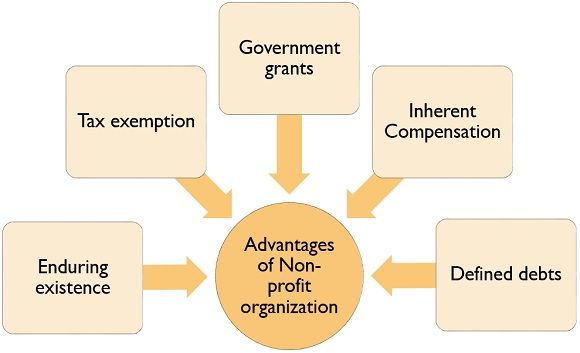The Benefits of Nonprofit Organizations
Nonprofit organizations play a vital role in society, working towards various causes and making a positive impact on communities. In this article, we will explore the numerous benefits that nonprofit organizations bring to both individuals and society as a whole.
Social Impact
Nonprofit organizations are dedicated to addressing social issues and improving the lives of individuals and communities. They tackle a wide range of causes, including education, healthcare, poverty alleviation, environmental conservation, and more. By focusing on these issues, nonprofits create a lasting social impact that can lead to positive change.
Community Development
Nonprofits are at the forefront of community development efforts. They work closely with local communities to identify their needs and develop effective solutions. Through their programs and initiatives, nonprofits empower individuals, foster collaboration, and promote community engagement. This, in turn, leads to stronger and more resilient communities.
Advocacy and Awareness
Nonprofit organizations often act as advocates for marginalized groups and underserved communities. They raise awareness about important social issues, educate the public, and influence policy decisions. By amplifying the voices of those who are often unheard, nonprofits drive positive change and create a more inclusive society.
Volunteer and Skill Development
Nonprofits provide valuable opportunities for individuals to contribute their time and skills toward meaningful causes. Through volunteering, people can make a direct impact on their communities and develop new skills. Nonprofits often offer training and workshops, allowing volunteers to enhance their abilities and broaden their horizons.
Philanthropic Partnerships
Nonprofit organizations rely on the support of philanthropic individuals, corporations, and foundations. These partnerships enable nonprofits to expand their reach, fund their programs, and sustain their operations. By fostering philanthropic relationships, nonprofits create a network of support that fuels their mission and helps them achieve their goals.
Tax Benefits
Nonprofit organizations enjoy certain tax benefits due to their charitable nature. Donations made to nonprofits are often tax-deductible, encouraging individuals and businesses to contribute to these organizations. Additionally, nonprofits may be exempt from certain taxes, allowing them to allocate more resources toward their programs and initiatives.
Collaboration and Networking
Nonprofits often collaborate with other organizations, both within and outside their sector. These collaborations foster innovation, knowledge sharing, and resource pooling. By working together, nonprofits can achieve greater impact and address complex social challenges more effectively.

Nonprofit organizations are a driving force for positive change in society. Through their social impact, community development efforts, advocacy work, volunteer opportunities, philanthropic partnerships, tax benefits, and collaborations, nonprofits make a significant difference in the lives of individuals and communities. By supporting and promoting these organizations, we can collectively create a better and more equitable world.
Frequently Asked Questions
1. What are nonprofit organizations?
Nonprofit organizations are entities that operate for the benefit of the public or a specific cause, rather than for making profits.
2. What are the benefits of donating to a nonprofit organization?
Donating to a nonprofit organization allows you to support a cause you care about and make a positive impact on society. Additionally, donations to nonprofits are often tax-deductible.
3. How do nonprofit organizations benefit the community?
Nonprofits play a crucial role in addressing social issues and meeting the needs of the community. They provide essential services, promote social welfare, and advocate for change.
4. What are the advantages of working for a nonprofit organization?
Working for a nonprofit organization allows individuals to pursue their passion, make a difference, and contribute to a meaningful cause. Nonprofits also often offer a more flexible and fulfilling work environment.
5. Are nonprofit organizations exempt from paying taxes?
Yes, nonprofit organizations that meet certain criteria are generally exempt from paying federal income taxes. However, they may still be required to pay other taxes such as payroll taxes.
6. How can nonprofit organizations raise funds?
Nonprofit organizations can raise funds through various means, including individual donations, grants from foundations or corporations, fundraising events, and partnerships with businesses.
7. Do nonprofit organizations have a board of directors?
Yes, nonprofit organizations typically have a board of directors who are responsible for overseeing the organization’s activities, making strategic decisions, and ensuring compliance with legal and ethical standards.
8. Can nonprofit organizations make a profit?
Nonprofit organizations can generate revenue through their activities, but any surplus funds are reinvested into the organization’s mission rather than distributed to owners or shareholders.
9. How can I start a nonprofit organization?
Starting a nonprofit organization involves several steps, including developing a mission statement, filing the necessary legal documents, and obtaining tax-exempt status. Consulting with legal and financial professionals is recommended.
10. How can I volunteer for a nonprofit organization?
You can volunteer for a nonprofit organization by reaching out directly to the organization of your choice, checking their website for volunteer opportunities, or using online platforms that connect volunteers with nonprofits.




